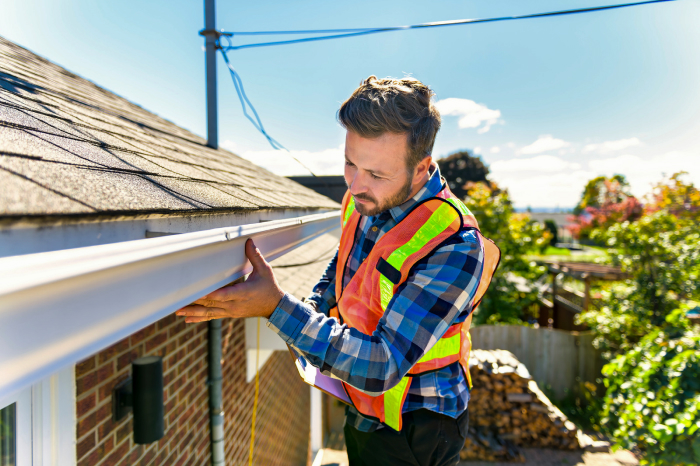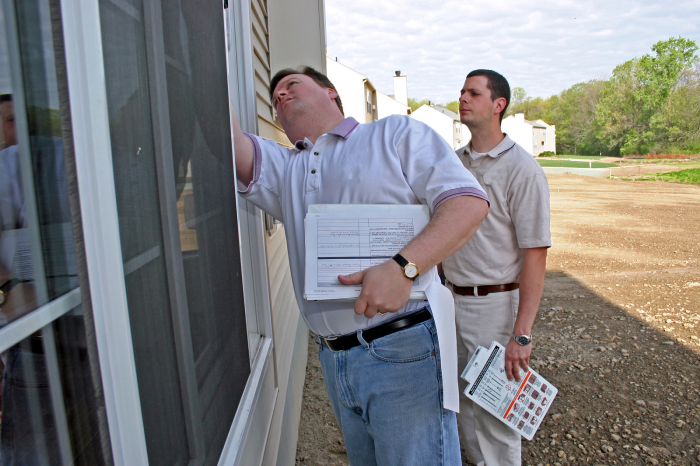7 Different Options For A Home Inspection When Buying A House

About 86% of home inspections found at least one issue that needed repairs. That’s why you need a home inspection when buying a house.
There are times when a mortgage company requires it to approve a loan. Even if it’s not required, a home inspection protects you from buying a home that needs significant repairs.
Different types of home inspections will cover issues that might not be uncovered during a home inspection.
Read on to learn more about home inspections when buying a house.
Things That Are Included In A Home Inspection:
Home inspectors often conduct a visual inspection of the parts that are accessible. So, they will simply leave out the parts that cannot be properly viewed or visible.
This may include pest infection under the wooden floor or the areas that are hard to reach, such as chimney interiors.
However, the following parts of a home can be included during the inspection.
- Roof
- Plumbing
- Heating and air conditioning
- Major built-in appliances
- Exterior components such as porches, sidings, decks, etc.
- Floors, walls, ceilings, and other structural components.
- Insulation
- Fireplaces
- Wooden stoves
- Windows and doors.
Different Options For A Home Inspection When Buying A House
The home inspectors perform different kinds of testing, which helps them to find out where the fault is and what needs attention.
They can also recommend some solutions based on their evaluation. For example, you can call an HVAC expert to resolve the issues with your heating appliances.
In the following, I will discuss the top 7 inspections that you may need when buying a house.
1. General Inspection:
A general inspection covers the major parts of the exterior and interior of the home. It’s extensive but essential at the same time. You’ll learn about the general condition of the house.
The general inspection looks at structural issues and the home’s HVAC, electrical, and plumbing.
2. Mold Inspection:
Mold can be a significant problem in homes. These spores multiply and get into central heating and cooling units. The spores can spread throughout the house and cause health issues.
Do you need a mold inspection? If the home inspector noticed tiny mold spores during the inspection, you need to get a mold inspection to find out more.
Another reason to get a mold inspection is if you notice water damage or discolored paint.
Even though the cost of mold inspection may vary based on the size of the home, in general, it may cost you around $200 to $400.
3. Pest Inspection:
It’s not fun to buy the home of your dreams only to find out later that you have exceptional tenants living in the house. Pests and rodents can do significant damage to your home.
A pest inspection looks for any signs of damage or pest infestation. Some inspection companies combine building and pest inspections. One example of such a company is abis.com.au. That saves you from having to find two different companies.
4. Landscape Inspection:
You might be wondering if you need an inspection for the landscaping around your home. It does if you’re buying a house on or near a hillside.
The soil could give in a bad storm, causing a landslide. That’s dangerous if your home is on a hill or at the bottom of the mountain.
A landscape inspection tests the drainage, soil type, and foundation of your home.
5. Pool Inspection:
Does the property you want to buy come with a pool? A general inspection won’t tell you if there are significant issues with the pool, so you’ll want to get this type of inspection before you buy the home.
A pool inspection inspects the pool for cracks and leaks. You’ll also know if there are filters, a pool heater, or pump issues.
6. Foundation Inspection:
In this case, a home inspector will look at the house’s foundation. They take note of potential issues such as issues with drainage systems and problems with tree roots or look for cracks or other movements.
Once they spot any serious issue with the foundation, they may ask you to suggest you consult with a residential structural engineer. The engineers can examine the property.
Moreover, the structural engineer can help you with a detailed and comprehensive inspection. They will tell you about the exact issues and how you can address them.
The cost of foundation inspection may vary from region to region. However, they generally cost $500.
7. Asbestos Inspection:
While building a new home, certain materials were used, including asbestos. Asbestos is a substance that can cause serious health issues such as Cancer. Until the late 1970s, asbestos was used vastly in building houses
As per federal law, it is not necessary to disclose that the building contains asbestos. However, there are states that have made such disclosure mandatory.
Now, if you are planning to buy an old house, there are chances that the owner may not disclose asbestos contents. Thus, it is important to get the property checked. The home inspector can run some tests and inform you about the presence of asbestos.
You can also consult with a local asbestos abatement company. They can help you to detect asbestos and provide you with some solutions according to it.
Get The Right Home Inspection When Buying A House
You might only be required to get a general inspection close to your home. There may be other issues that need to be addressed that the general inspection doesn’t cover.
That’s why it’s so helpful to know all home inspection types. You can get the proper home inspection when buying a house. You’ll have the peace of mind that you deserve.
For more helpful real estate tips, check out the Housing Trends section of this site.
Read Also:













Leave A Reply